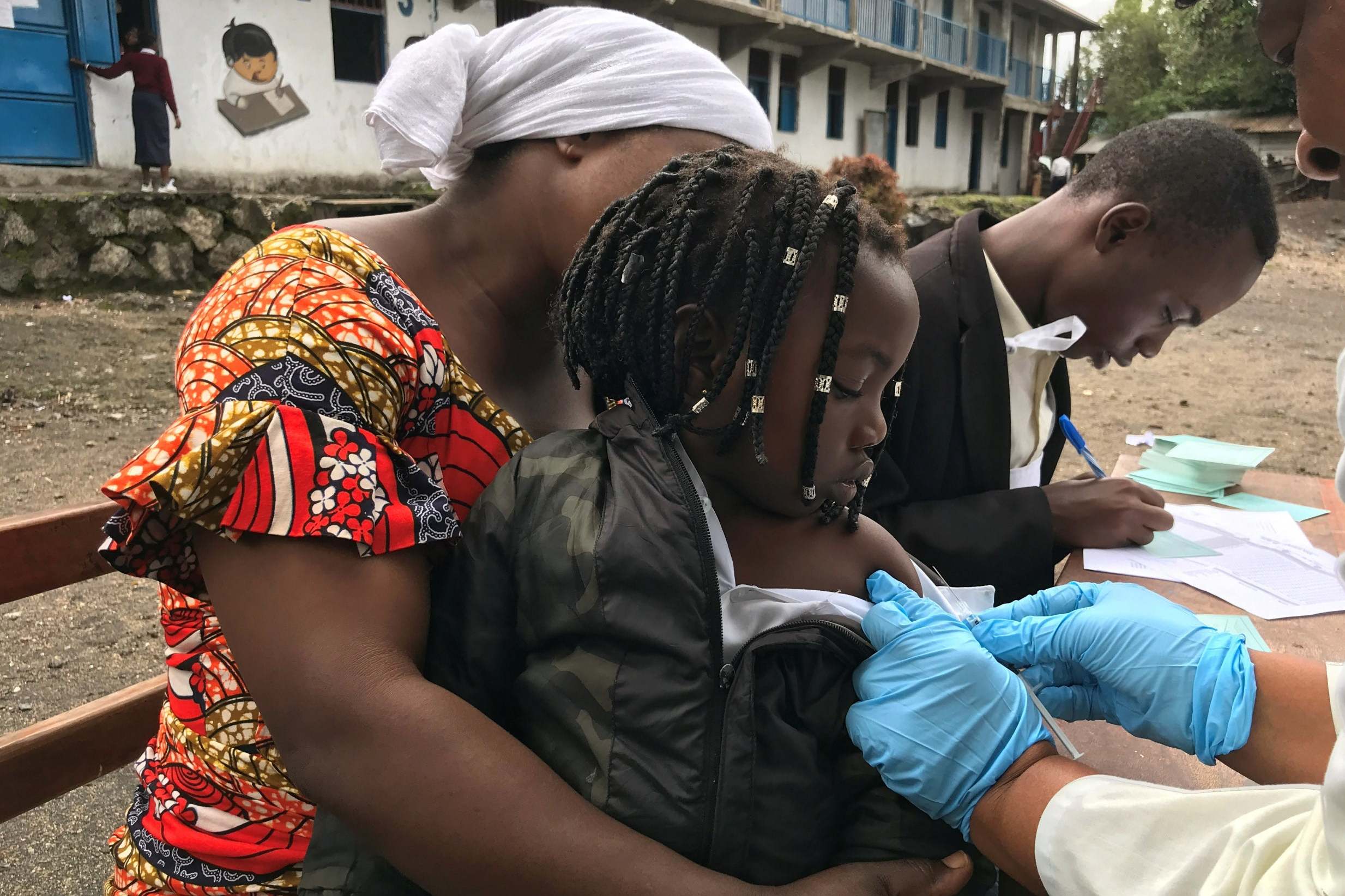DR Congo measles outbreak: 6,000 killed as disease claims three times as many lives as Ebola
‘Thousands of Congolese families need our help,’ aid workers say in plea for assistance

Your support helps us to tell the story
From reproductive rights to climate change to Big Tech, The Independent is on the ground when the story is developing. Whether it's investigating the financials of Elon Musk's pro-Trump PAC or producing our latest documentary, 'The A Word', which shines a light on the American women fighting for reproductive rights, we know how important it is to parse out the facts from the messaging.
At such a critical moment in US history, we need reporters on the ground. Your donation allows us to keep sending journalists to speak to both sides of the story.
The Independent is trusted by Americans across the entire political spectrum. And unlike many other quality news outlets, we choose not to lock Americans out of our reporting and analysis with paywalls. We believe quality journalism should be available to everyone, paid for by those who can afford it.
Your support makes all the difference.Measles has killed three times as many people as Ebola in the Democratic Republic of Congo, in what the World Health Organisation (WHO) described as “the world’s worst measles epidemic”.
More than 6,000 people have died following the measles outbreak, with more than 310,000 cases reported in the country since the beginning of 2019. The WHO warned the outbreak would continue if more funding was not made available.
And despite $27.6m (£21m) having been mobilised in order to tackle the problem, the organisation said a further $40m was needed for a six-month vaccination programme that would protect children between the ages of six and 16.
“We recognise the government’s engagement in the efforts to end the outbreak and we are grateful for the generosity of our donors. But we still need to do more,” said Dr Amedee Prosper Djiguimde, the officer in charge of the WHO office in the DRC.
“Thousands of Congolese families need our help to lift the burden of this prolonged epidemic from their backs. We cannot achieve this without adequate finances.”
As well as needing additional funding to finance a vaccination programme in the county, health workers in DR Congo also face problems with infrastructure in-country that hampers the uptake of vaccinations – which have been available for several decades – while vaccination use is also low in areas of the country where armed groups are active.
“We are doing our utmost to bring this epidemic under control,” said Dr Matshidiso Moeti, the WHO regional director for Africa. “Yet to be truly successful we must ensure that no child faces the unnecessary risk of death from a disease that is easily preventable by a vaccine.
“We urge our donor partners to urgently step up their assistance.”
It comes as health resources in the country are also under strain from the Ebola outbreak that has become the second-worst in history, resulting in the deaths of more than 2,231 people since August 2018.
Additional reporting by AP
Join our commenting forum
Join thought-provoking conversations, follow other Independent readers and see their replies
Comments